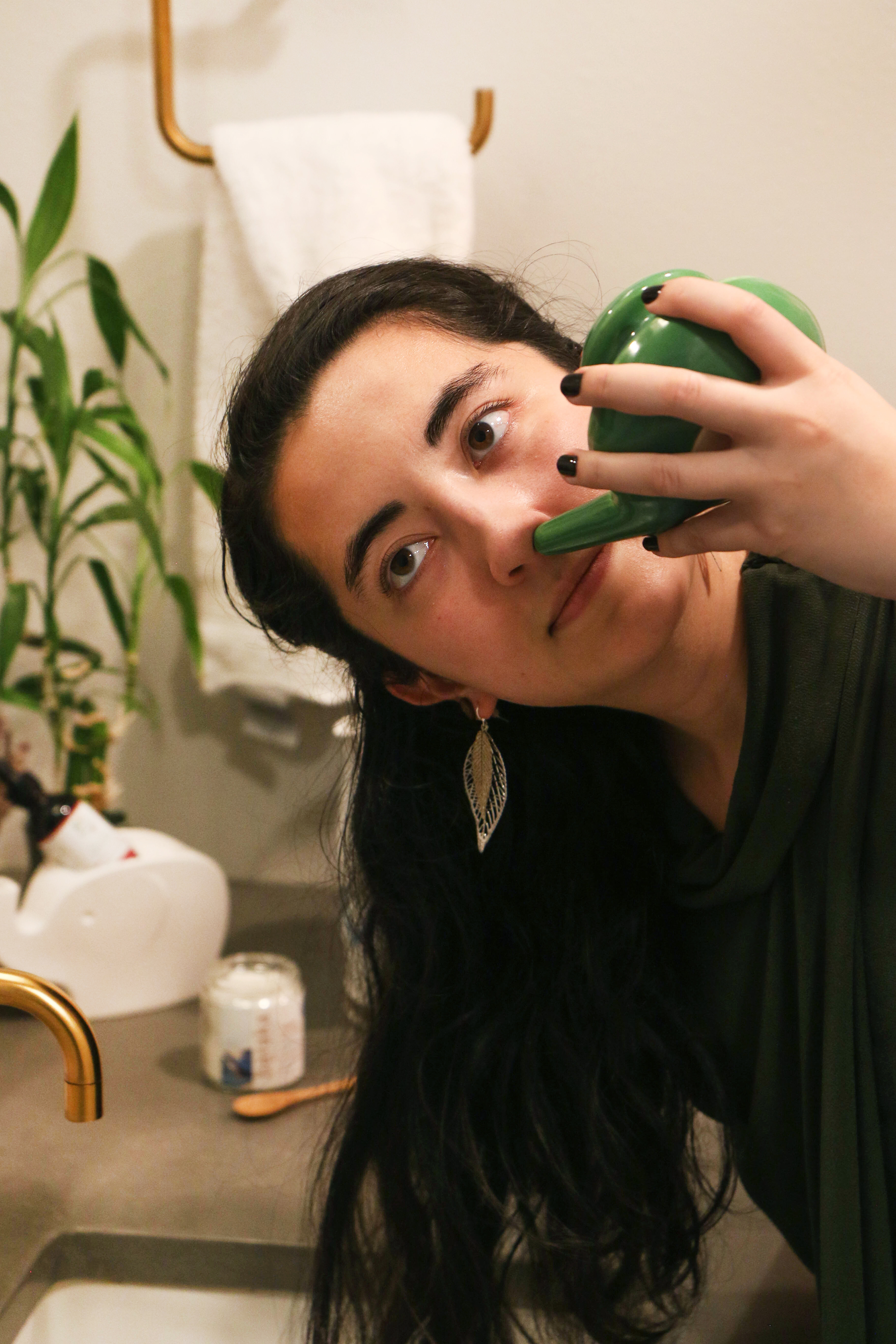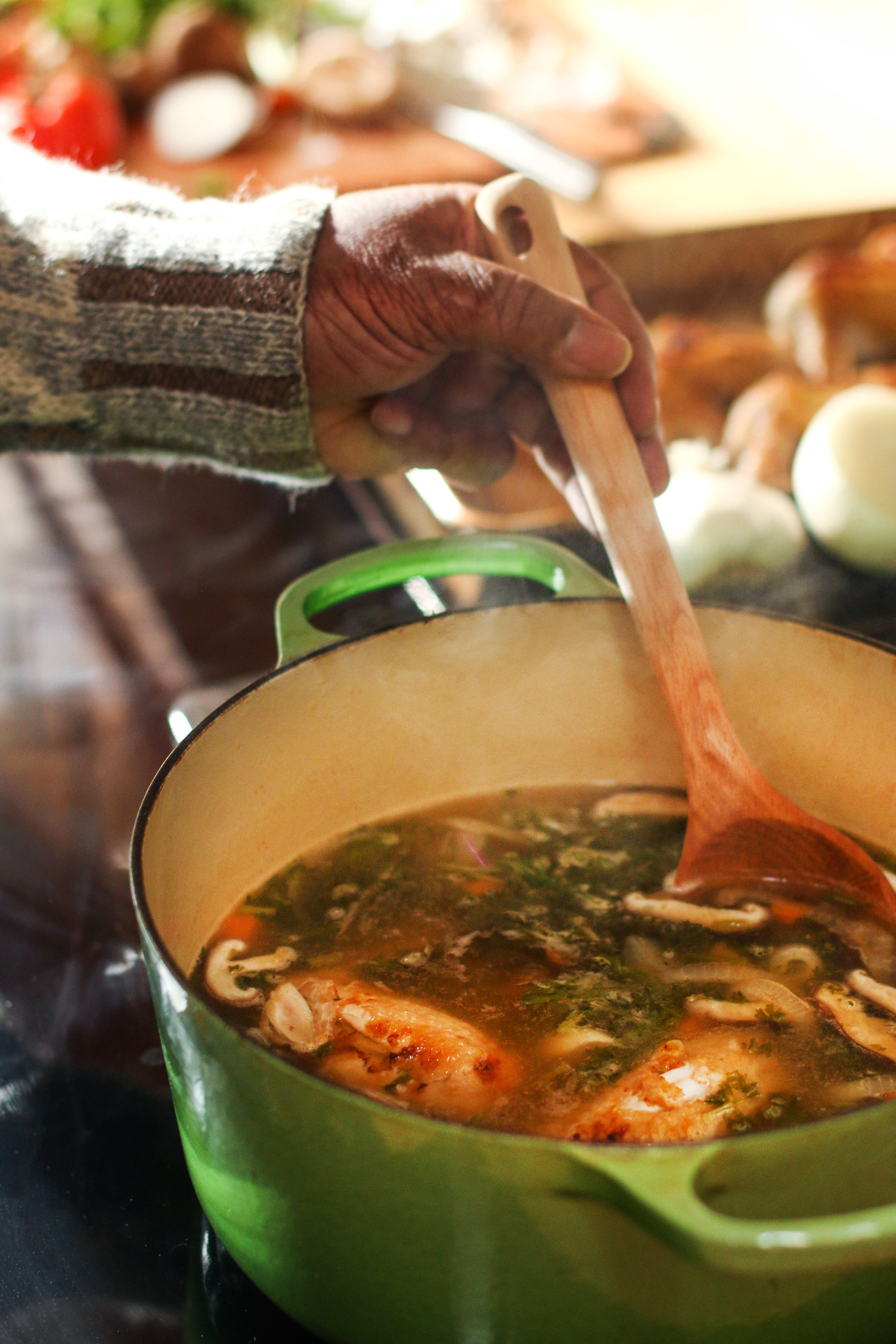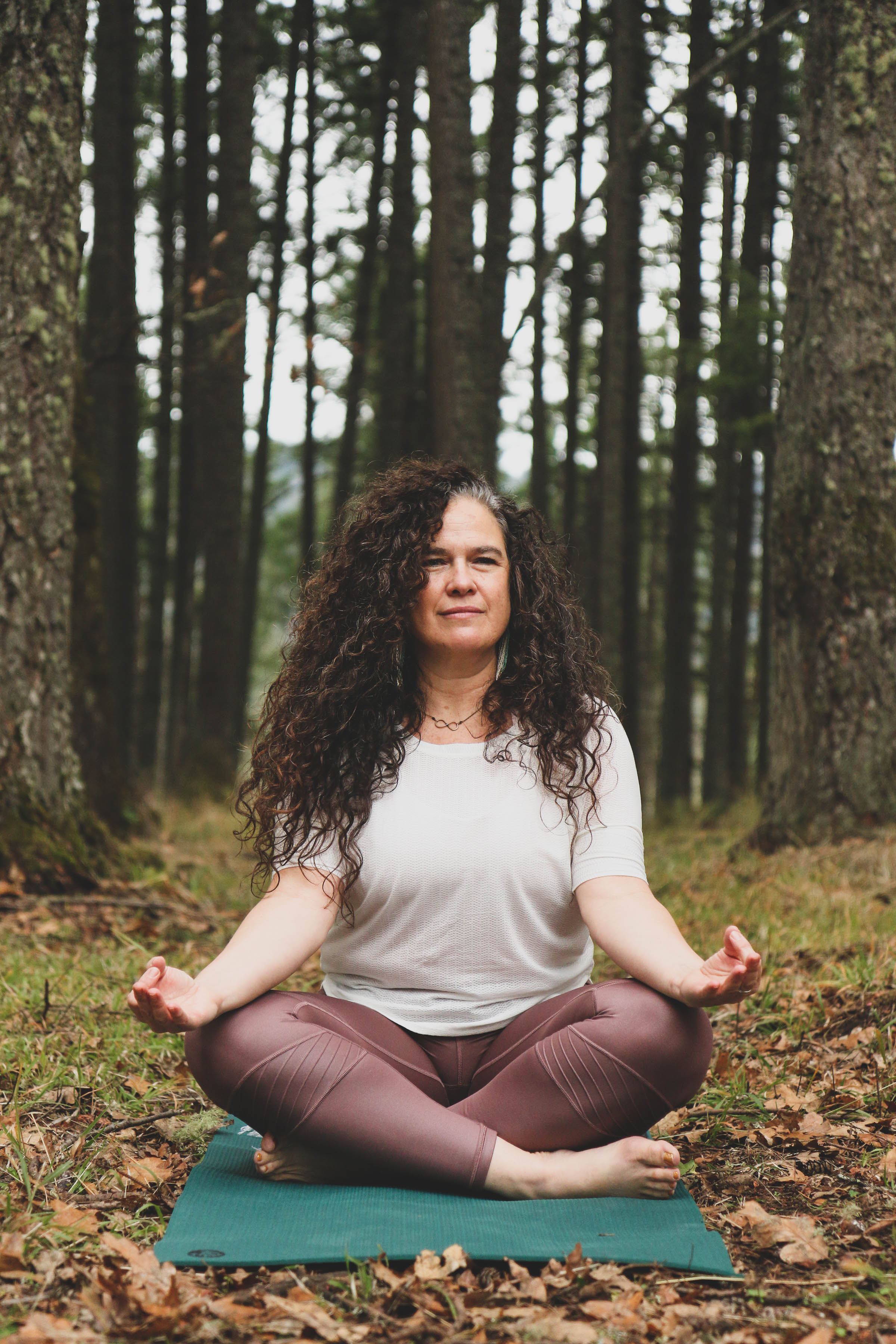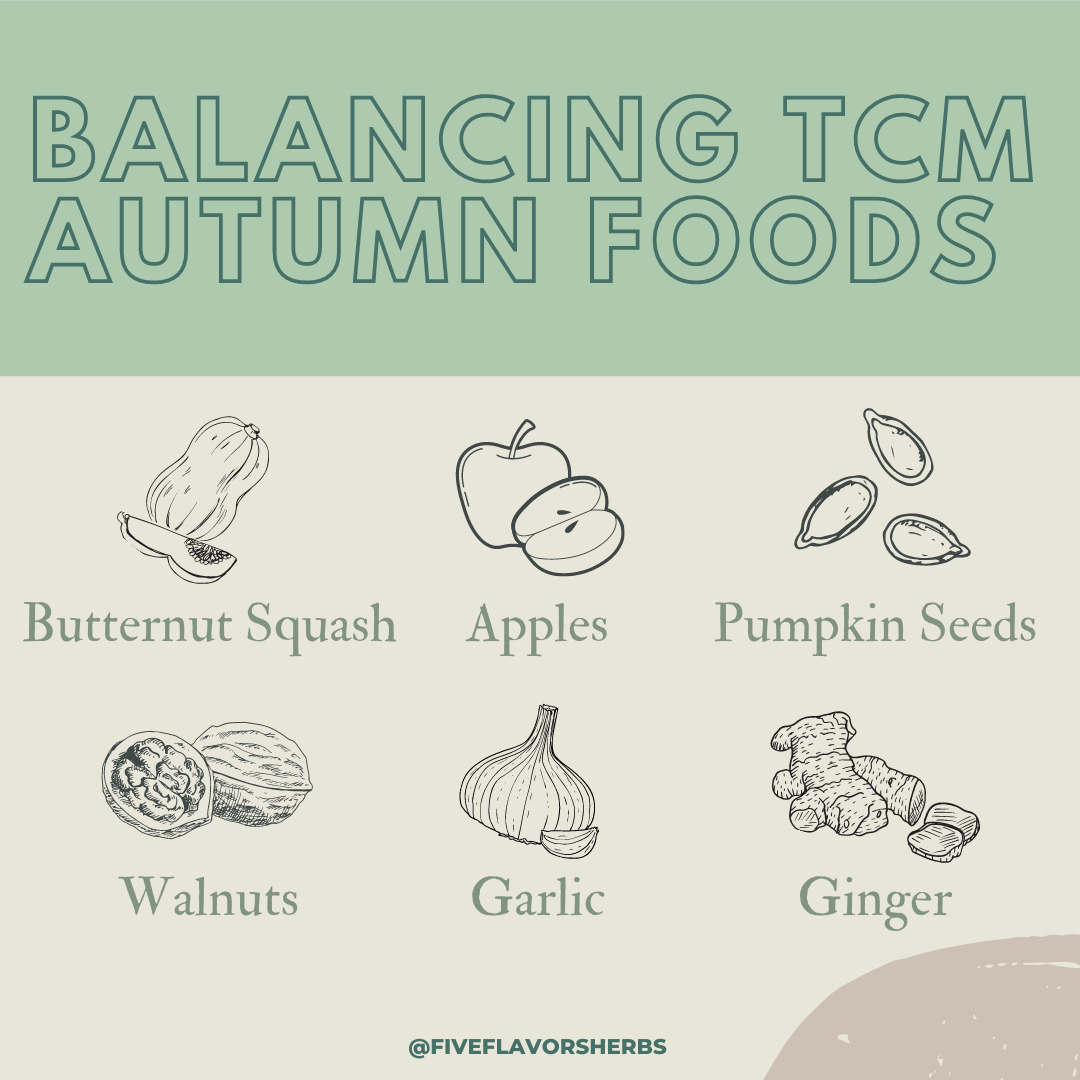Autumn in East Asian systematic correspondence is associated with the Metal phase and with two organs: the Lungs and Large Intestine. These elemental shifts can trigger a number of seasonal disturbances that may manifest physically, psychologically, and/or emotionally. On a tangible level, we may experience dryness of the skin and other tissues, necessitating the use of more nourishing skin care formulas. On a spiritual level, we may find ourselves struggling with heavy feelings that can hit us hard after the light, vivacious days of summer.
Many cultures observe an arc of ritual beginning at the autumn equinox focused on “letting go” of past attachments that may be weighing us down. Similar themes also suffuse the autumnal holidays dedicated to observing the transitions of souls to the afterlife, such as Samhain, Halloween, All Saints’ and Souls’ Days, and Día de los Muertos. These celebrations invite us to engage our grief and find an acceptance of the passage of loved ones.
Traditional Chinese Medicine perspectives view the spiritual-emotional and physical effects of fall as interrelated symptoms of overarching systemic shifts in our environment. This holistic outlook opens up many possibilities for supporting seasonal health, revealing multiple opportunities to improve our overall well-being by strategically tending to the organs and energy centers most vulnerable to imbalance.
Fall Body-Spirit Connections in Chinese Medicine
In the annual cycle of elemental correspondences, Metal is associated with grief, sorrow, and sadness, often precipitated from an experience of loss. This may mean the loss of an individual, be it through a breakup or a physical death. These feelings may also arise in relation to trauma, loss of place, and certainly to the observation of collective grief.
Grief, sorrow, and sadness are often experienced in the chest, specifically in the Lungs, Heart, and Liver—organs involved with sighing, crying, sobbing, and yelling, and with sensations of stuck energy in the torso or breathing disruptions ( breathing exercises and/or moderate cardiovascular exercise can help keep help ease these symptoms by moving energy through the Lungs and chest). The Lungs are considered the “sensitive” organ in TCM, since the open airways that supply them make them more vulnerable to external pathogens and irritants than other organs.
Autumn is a season of heightened risk for Lung health, but it is also considered the best time to treat the Lungs for prevention of illness. TCM formulations, such as Jade Windscreen (the basis for our signature Back to School immune support tincture), provide systemic immune support by “releasing the exterior” to ward off airborne threats. Many find rapid relief by using essential oils for congestion mitigation, especially dispersed via a diffuser or in an herbal steam. Neti pot use can support respiratory health by clearing allergens and microbes from the sinus pathways, reducing our seasonal discomfort and risk of falling ill. Since the Lungs and airways loathe dryness, it can be useful to follow up a neti pot cleanse with a few drops of sesame oil.
So, how are the bowels involved in this seasonal transition? In TCM, the Lung-bowel correspondence is embodied by the position of the Large Intestine channel/meridian, which originates at the bowel and terminates at the edge of the nostrils. The “Yellow Emperor’s Classic of Medicine,” an important East Asian medical text attributed to the 3rd millennium BCE, acknowledges the strong relationship between these organs. It suggests that using bitter medicinals (like our GI Feel Better Tincture) and foods to drain the bowel of impurities may also help to decongest the Lungs and is an important early fall preventative health measure. This can be accomplished with a short system cleanse in the pivot between summer and fall consisting of a few days of lighter eating, followed by the adoption of more substantial and nutrient-dense foods classified as “sweet” according to TCM flavor definitions (specific recommendations below).
As a practitioner, I have seen abundant support for this correlation between sinus and bowel health when treating my patients. I have commonly observed that clearing the Large Intestine tends to reduce upper respiratory congestion and related symptoms like irritation, sneezing, and itching.
Seasonal Eating for Autumn
East Asian health traditions encourage eating with the seasons. Consuming what is naturally available at a given time of year helps us to nourish ourselves with the nutrients and energetic properties appropriate to fortifying our bodies to adjust to seasonal demands. For example, summer presents us with an abundance of foods suitable for raw consumption, including tomatoes, cucumbers, melons, stone fruits, grapes, and tender salad greens. During these months of long and very activity-filled days, our bodies make good use of the energy from raw fruit sugars and the hydration of juicy vegetables.
As we transition into fall, the atmosphere cools, and we slow down. It's more appropriate to consume fewer raw foods and more cooked, nutrient-dense options, especially dishes that incorporate immune-supportive aromatics. Cooking foods makes them easier to digest, which becomes increasingly important in fall and winter, when poorly processed inputs can be transformed into dampness and phlegm that can undermine Lung resilience and immune response.
TCM FOODS FOR FALL
Here are some options from key food groups to embrace fall’s balance:
- Veggies: Winter squash nourishes fluids and supplement qi.
- Fruits: Cooked apples, pears, persimmons, and figs promote easy nutrient absorption.
- Nuts/Seeds: Pumpkin seeds, walnuts, chestnuts, and sesame seeds nourish without straining digestion.
- Herbs/Spices: Garlic, onions, cinnamon, ginger, and nutmeg aid circulation and prime the immune system.
Fall Routines: Slowing Down & Shifting Forward
Autumn brings changes in natural light patterns and the coming of daylight savings for most of us in our hemisphere, so it can be beneficial to adjust our own rhythms and routines as well. TCM recommends moderating our energy expenditure and coordinating our times of productivity to take advantage of the brightest, most energizing times of the day. Part of our seasonal “letting go” practice may involve changing inefficient and/or unhealthy habits and thought processes that hold us back.
Embracing fall’s “Metallic” energy includes being more deliberate and intentional with our words, thoughts, and actions. If your responsibilities allow it, we recommend getting up early, beginning the day with some light exercise and a moderate breakfast, and making an earlier transition to evening rest in order to set a foundation for a more successful Autumn. You can also further support this transition by adopting or augmenting a daily vitamin D regimen, and by making use of our Sustainable Energy Tincture with adaptogens when you experience a dip in mood or motivation.
WANT MORE RESPIRATORY SUPPORT GUIDANCE?
NETI POT USE TIPS FOR CONGESTION
You might also enjoy:
- Herbal Tinctures for Natural Health Support
- Addressing Mental Health Issues with Chinese Medicine
- 10 Essential Oils for Sinus Health
Written by Benjamin Zappin, LAc: Five Flavors Herbs co-founder Benjamin Zappin is one of the Bay Area's most respected and knowledgeable herbalists and a licensed acupuncturist. With over 20 years of experience, Benjamin synthesizes his deep knowledge of Chinese and western herbal medicine with modern medical perspectives to create effective herbal formulas and treat patients. He serves patients through Paeonia Integrative Medicine.






